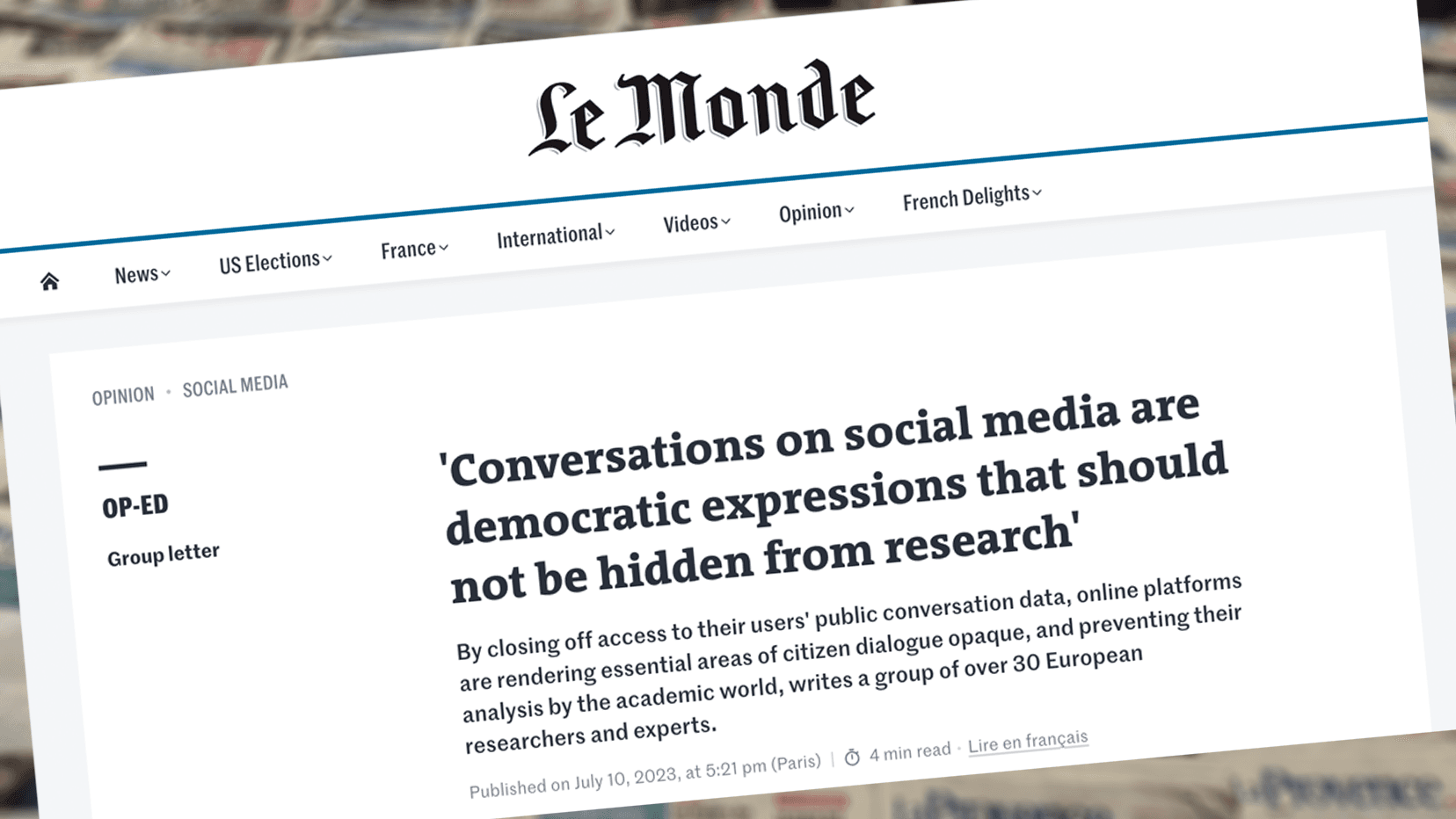
Calling on the regulator: Social networks can't be a black box for researchers
The ‘very large online platforms’ are gradually closing off access to their users' public conversation data, causing a collective blindness to essential areas of civic dialogue, and thereby granting themselves a monopoly on their analysis. The academic world is deprived of a crucial tool for studying society, which is impoverished by this lack of shared memory. The regulator has taken up the issue, via the European Digital Services Act (DSA), but it will have to go further, both in terms of extension (only the largest platforms are targeted) and intensity. The digital giants would be well advised to respond to this fundamental democratic challenge.
Social media are becoming increasingly opaque. Twitter is closing access to its data to researchers and charging prohibitive rates for using its databases. Elon Musk has just announced that he is leaving the European Code of Practice on Disinformation, exacerbating tensions with the regulator. Meta will soon close CrowdTangle, the only search tool on Facebook and Instagram.
Other traditionally open platforms, such as Reddit, are also preparing to limit access, while some major players have always been inaccessible: Despite the rise of LinkedIn as a conversational network, the professional site has remained tightly locked, like TikTok or Twitch. Search engines such as Google and Bing are raising new questions as they deploy generative artificial intelligence to draft their answers to internet users' queries.
Conversations on social media are democratic expressions that should not be hidden from research. In a " post-internet " world, societal debates are taking place on a massive scale on platforms, and an informational and reflexive public space is taking shape at the crossroads of the press and social media.
Read the rest of the op-ed in Le Monde
Signatories
Céline Braconnier (Sciences Po Saint-Germain-en-Laye, Cesdip, CY Université)
Zack Brisson (Counterpoint)
Guillaume Cabanac (Université Toulouse 3)
Frédéric Clavert (Université du Luxembourg)
Jean-Philippe Cointet (médialab - Sciences Po Paris)
Lucien De Brot (meteco)
Rémi Douine (R&D Labs)
Jean-Yves Dormagen (Université de Montpellier I)
Mélanie Dulong de Rosnay (Centre Internet et Société - CNRS)
Renaud Epstein (Sciences Po Saint-Germain-en-Laye, Cesdip, CY Université)
Marc Faddoul (AI Forensics)
Fabio Giglietto (Università di Urbino Carlo Bo, Italie)
Joël Gombin (datactivist)
Pierre-Carl Langlais (opsci)
Florent Lefebvre (Flefgraph)
Axelle Lemaire (ancienne ministre en charge du numérique et de l’innovation)
Francesca Musiani (Centre Internet et Société - CNRS)
Giada Marino (Università di Urbino Carlo Bo, Italie)
Olivier Mauco (game in society)
Asma Mhalla (EHESS/CNRS, Columbia Global Centers, Sciences Po, École Polytechnique)
Carl Miller (Centre for the Analysis of Social Media - Demos)
Christian Morgner (University of Sheffield)
Valerio Motta (Nemo Claudit)
Rozenn Nardin (ex SIG)
Justin Poncet (opsci)
Christophe Prieur (Université Gustave-Eiffel)
Simon Reid-Henry (Queen Mary University of London)
Jordan Ricker (opsci)
Miklós Sebők (Centre for Social Sciences - Hongrie)
Eszter Török (Centre for Social Sciences - Hongrie)
Albin Wagener (Université Rennes 2, Inalco)